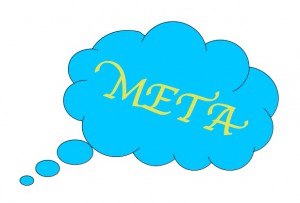ELSI Blog
14 Metadisciplinary Research
A few weeks ago, Ken Kurokawa, vice director of ELSI, gave a fascinating talk about his use of metadata, in a seminar titled "The Integrated Environmental Genomics Database: Earth-Life Database". Central in his talk was the use of metadata, using a software protocol called RDF, for Resource Description Framework.

What are metadata? In short: data about data, or you could say higher-order data. In every branch of science, datasets are growing at an exponential rate, and in addition they tend to become more heterogeneous. As a result, a dataset without a clear description of its contents as well as the context for its use is virtually useless. The data describing the dataset are called metadata.
While listening to Ken's talk, I thought about disciplines as well as data. Scientific research is not only awash in data, it also generates more and more specialized mini-disciplines, little ecological niches within or across existing larger disciplines, each with their own terminology, protocols, networks and conferences, sometimes even with their own journals. I started to wonder about the possible need for metadisciplines, in analogy with metadata.
The charter of ELSI, like other WPI institutes, is to focus on international and interdisciplinary research. While it is clear what `international' means here, an emphasis on bringing more foreigners to Japan to work side by side in roughly equal numbers with their Japanese colleagues, it is less clear what `interdisciplinary' means. It could be research within a local area of overlap between two disciplines, and in that case it could be narrower than either discipline (for example, string theory lies in the overlap between theoretical physics and mathematics, but is far narrower than either field). Or it could be research with a more global overlap containing large portions of many different disciplines (astrobiology would be an example, including much of astrophysics, geology, paleontology, soft matter physics, chemistry, biology, as well as fields in engineering).
Metadisciplinary research would yet form a third type of interdisciplinary research, a meta version in addition to the more local and global versions. A relevant example for us is the question of the origins of life, where the bulk of the research is carried out within biology, chemistry, geology and astronomy; it is a central area of research within ELSI. However, there is more to this origins question than biochemical lab experiments, geological field explorations and astronomical observations. We also need to reflect on the more `meta' questions of what characterizes life.
Seen as a complex systems phenomenon, how does life compare with other complex systems, such as our human society as a whole, or subsystems therein? Can we learn about the origins of life by studying the origins of, say, economics, or language? Some four billion years ago, life discovered a way of digital coding of information, in the form of DNA. Far more recently, humans, and perhaps to some extent other animals, discovered the use of language, as a digital combinatorial way of conveying information. And the invention of money is another way in which information became easier to deal with through digitization. Are there interesting and perhaps even essential aspects in common between these so very different systems?
One way in which ELSI could fulfill its interdisciplinary charter is to organize study groups and workshops on the metadisciplinary question of origins and early evolution of complex systems in general, in addition to the study of the origins and early evolution of life on Earth. Such an approach would include an even more diverse range of disciplines than astrobiology already covers. It would include other fields in physics, computer science and mathematics, as well as archeology, economics, and other fields in social science and the humanities. Let's see what we will come up with after the current summer break, and after the renovation of the ELSI building, two months from now.











